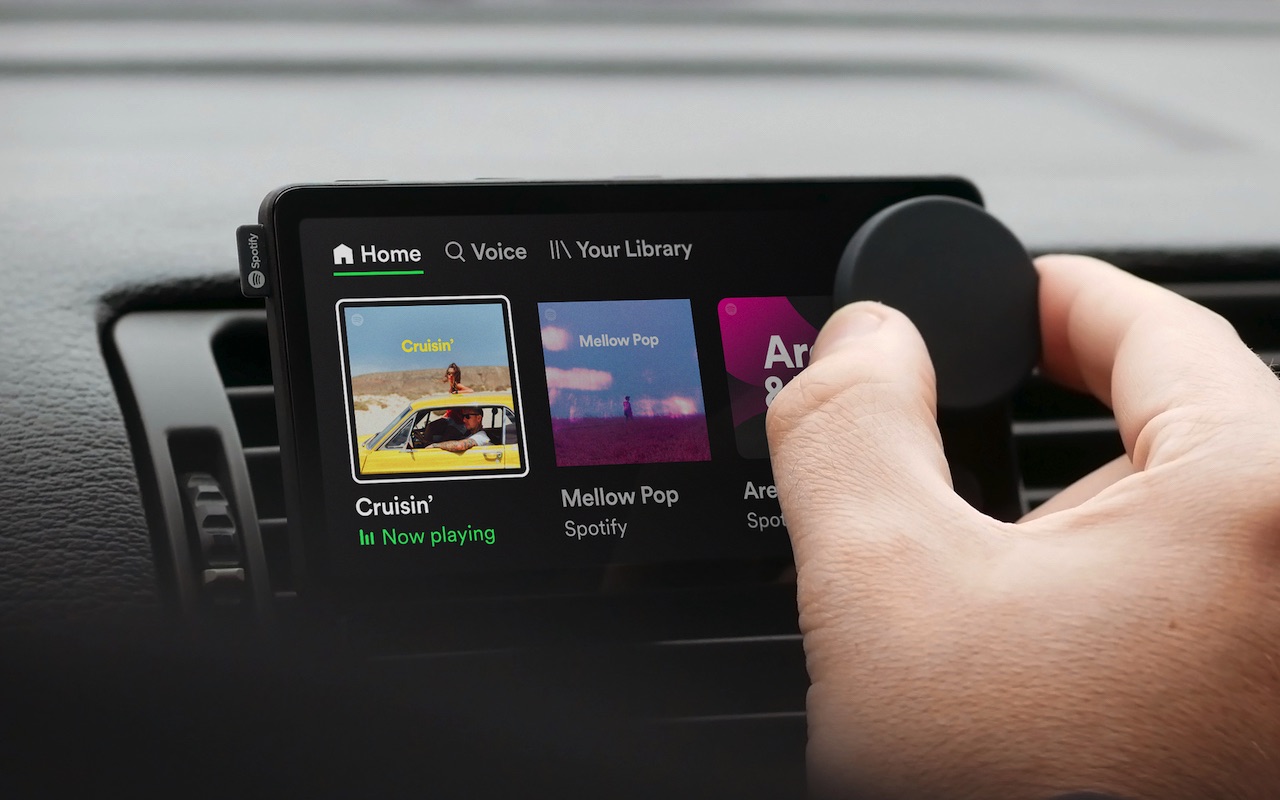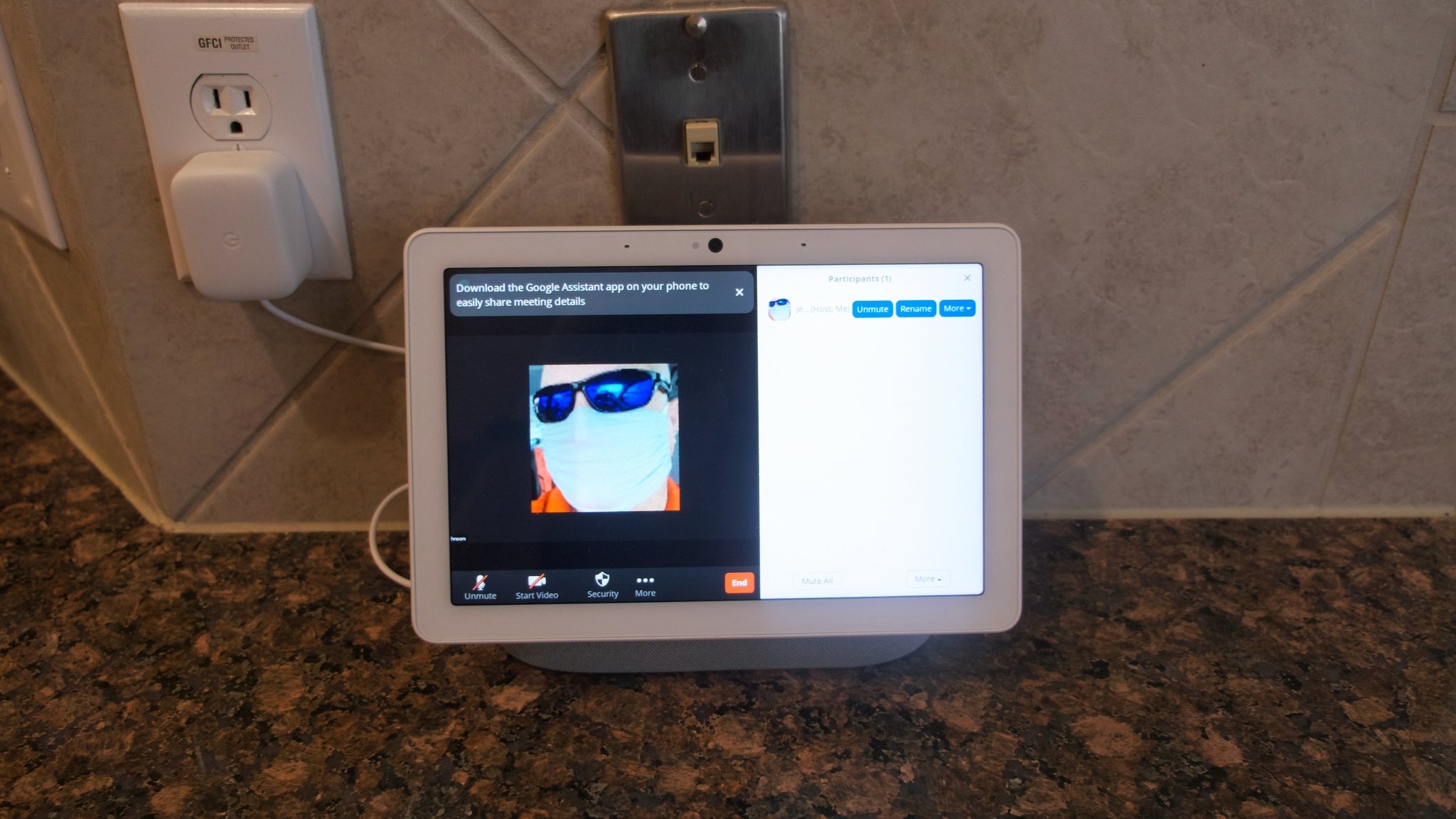These antivirus apps secure your Android from malware - Android
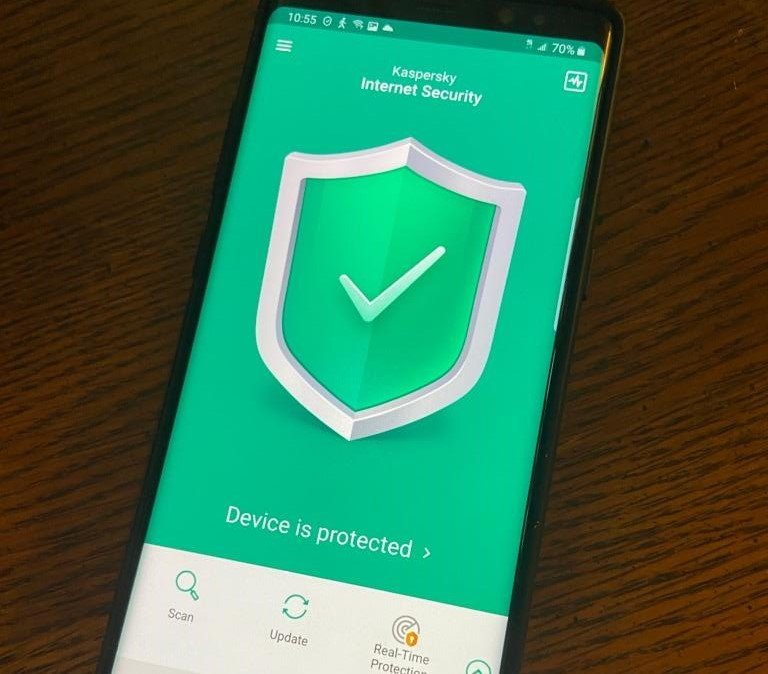
We tested several of the best antivirus apps on Android cellphones and tablets to learn which offer excellent malware protection without causing too much drag on your device. Bitdefender Mobile Security is the overall best. In fact, it's my top pick for Windows and Mac antivirus, too. Bitdefender ranks high for malware protection, doesn't use too many resources, and includes a few extra tools. It's also an overall good value.
Bitdefender Mobile Security
Best overall antivirus for Android
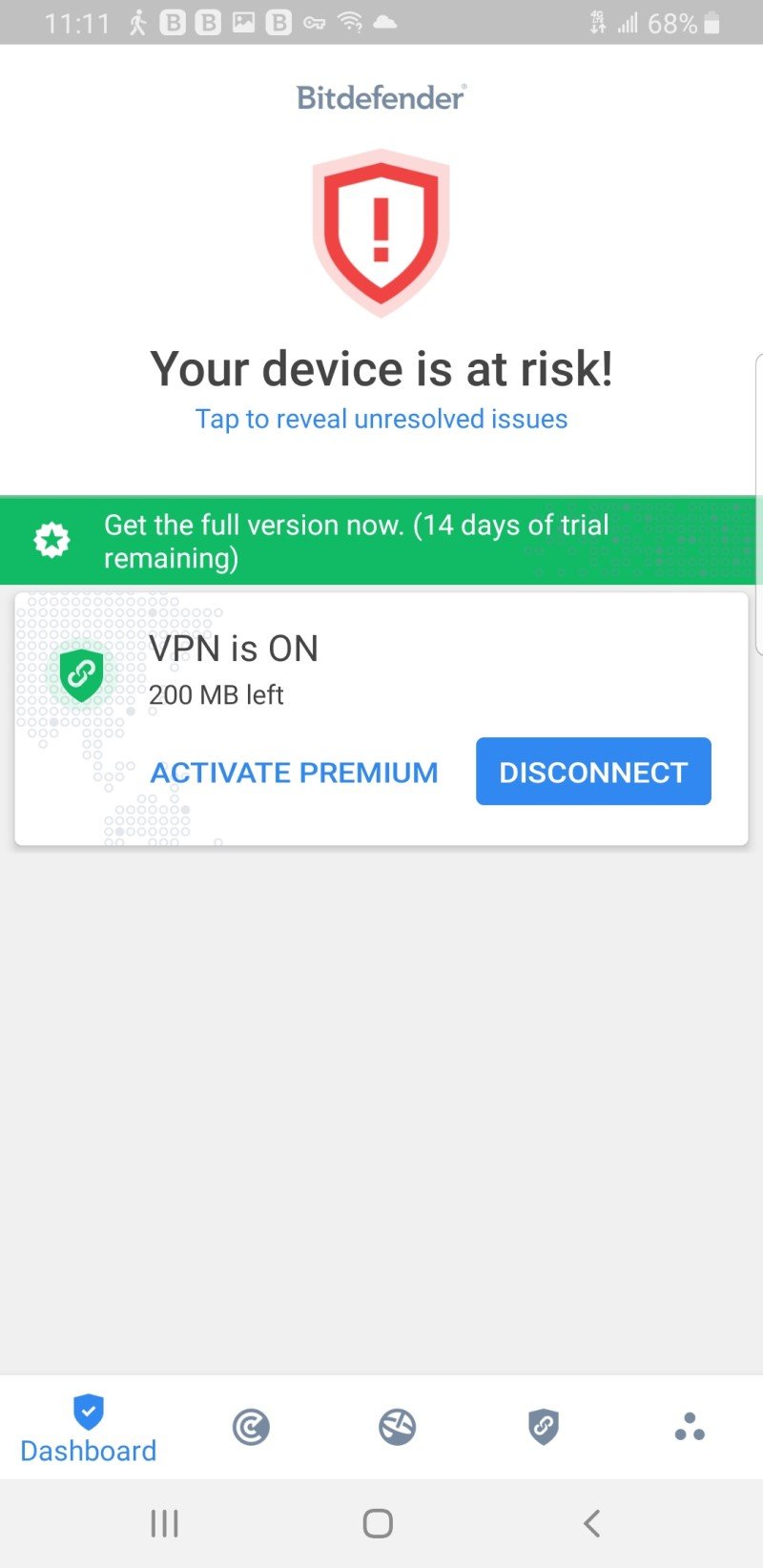
Bitdefender seems to do just about everything you'd need. It stops malware attacks and has web protection that warns of dangerous websites before you visit them. This app uses power management to use little of your phone's battery to avoid slowdown.
With this app, you can also remotely access your phone to wipe data, lock it down, or send a message to the device. You can also locate it with this feature, and connects it to your Android smartwatch to help remind you to grab your phone or locate it when left behind. This is a good way to track down your phone if it is ever lost or stolen while also securing personal information. Bitdefender Mobile Security also has a VPN and lets you send and receive 200MB of encrypted traffic each day. This isn't a lot, but you can purchase more.
Bitdefender Mobile Security is, for the most part, easy to figure out how to use. The dashboard is overwhelming with tasks and information when you first open the app, but I was able to wipe away those functions I didn't need. However, the VPN tool is permanently pinned to the dashboard.
Pros:
- Stops malware attacks
- Minimal resource use
- Phone locator
- Connects with Android smartwatches
- Has a VPN
- Great value
Cons:
- Extra VPN encryptions cost more
- Dashboard can be hard to parse at first
Best Overall
Bitdefender Mobile Security

- $15 from Bitdefender
Best cell phone protection
Bitdefender stops threats from infecting your mobile devices, includes a VPN and doesn't cause slowdown.
Avast Mobile Security Ultimate
Data shield is a great addition
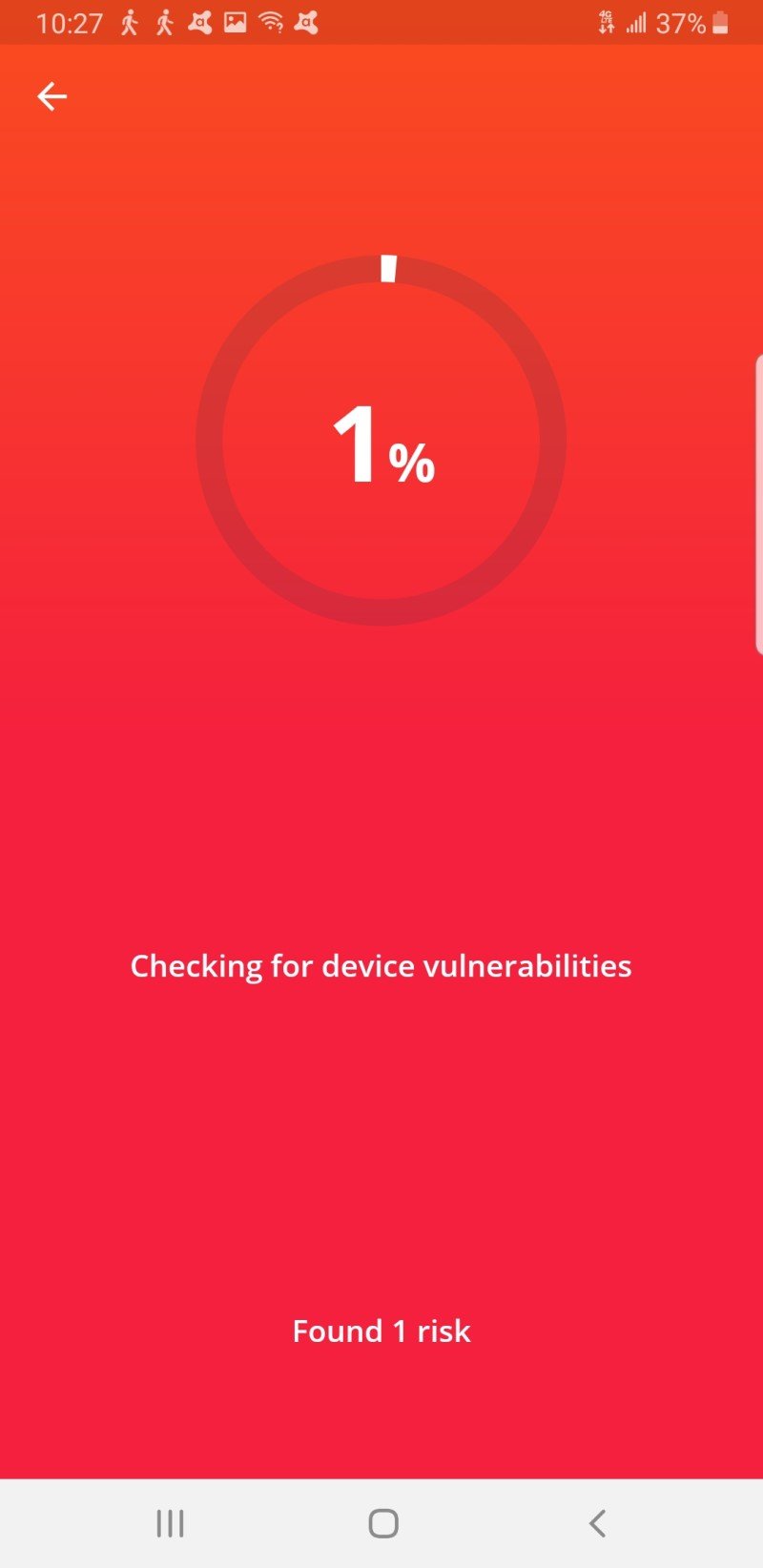
The basic version of the app is a free mobile security program that blocks both malware and spam messages. However, Avast's Ultimate program includes a VPN to hide your online activity. It includes a password manager to keep track of login credentials, and a data shield to protect photos, contact information, and other sensitive files from being swiped.
Avast Mobile Security removes ads, locks apps down with a PIN code to secure sensitive information, and cleans junk off your phone so it runs faster and keeps weak spots closed so hackers can't sneak in. It's Wi-Fi Security places an added layer of protection over your phone and its sensitive data while you're connected to public hotspots.
The dashboard is clean and it is easy to find the tools you need. However, Avast doesn't make it easy to enable all of its features. For some tools, you are prompted with links and permission requests. For others, you need to find more details and enabling features under the Privacy section. Also, you may need to perform multiple, and different types of malware scans, before Avast finally finds all corrupted and malicious files on your phone.
Pros:
- Includes VPN
- Password manager
- Data shield
- Basic version is free
- Helps your phone run faster
Cons:
- Clunky interface
- Scans might take multiple tries
- Expensive
Data Shield
Avast Mobile Security Ultimate

- $24 from Google Play
Guards sensitive information
Avast not only stops malware but protects sensitive information from ransomware and hackers.
Kaspersky Mobile Antivirus
Filter out texts with ease
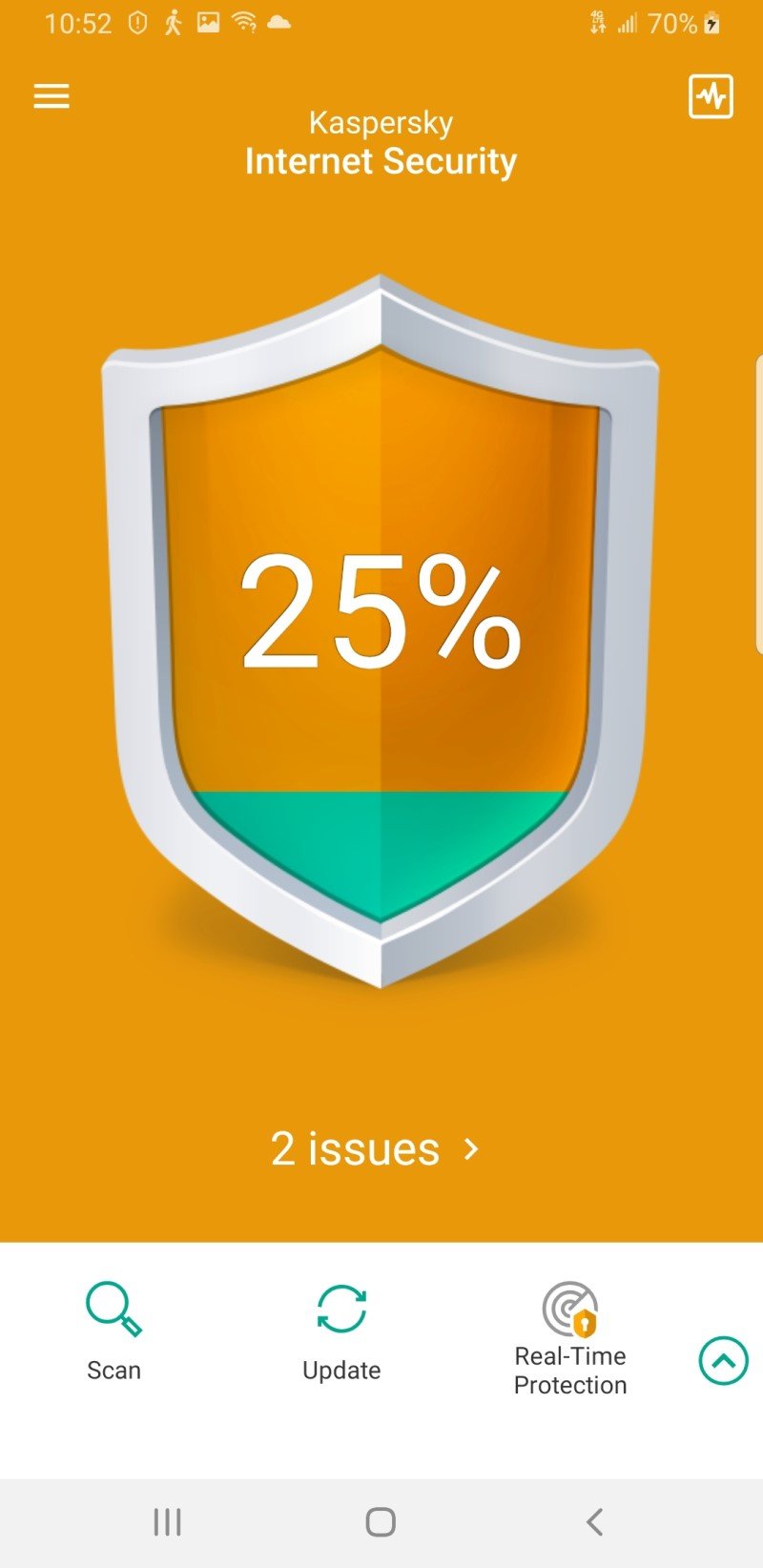
This app blocks phishing schemes in both email and text messages. Kaspersky also locks down both your and your contacts' information, so if someone steals your phone, no one will have access to this. This antivirus solution locks apps, filters calls, and texts, and blocks malware, including ransomware.
Kaspersky Mobile Antivirus includes several anti-theft tools, too, including a phone locator and locks to ensure no one can access sensitive information. Its App Lock feature locks down photos, messages and other apps with a secret code that needs to be entered before you, or anyone else, can access them.
While Kaspersky is easily one of my favorite antivirus programs, even for desktops, it has been accused of swiping sensitive information from federal employees and department devices and providing this information to the Russian government. While Kaspersky has vehemently denied these accusations, the U.S. government has ordered Kaspersky not to be used on its devices and recommend its employees do the same, even on their own, personal devices.
Pros:
- Phishing blockers
- Remote phone lockdown
- Ransomware protection
- App lock protects your files
- Great price
Cons:
- Not recommended for government employees
Text Filtering
Kaspersky Mobile Antivirus

- $12 from Google Play
Text and email protection
Kaspersky keeps an eye on email and text messages, including attachments, for dangerous links or files.
McAfee Mobile Security
A well-known antivirus app for Android
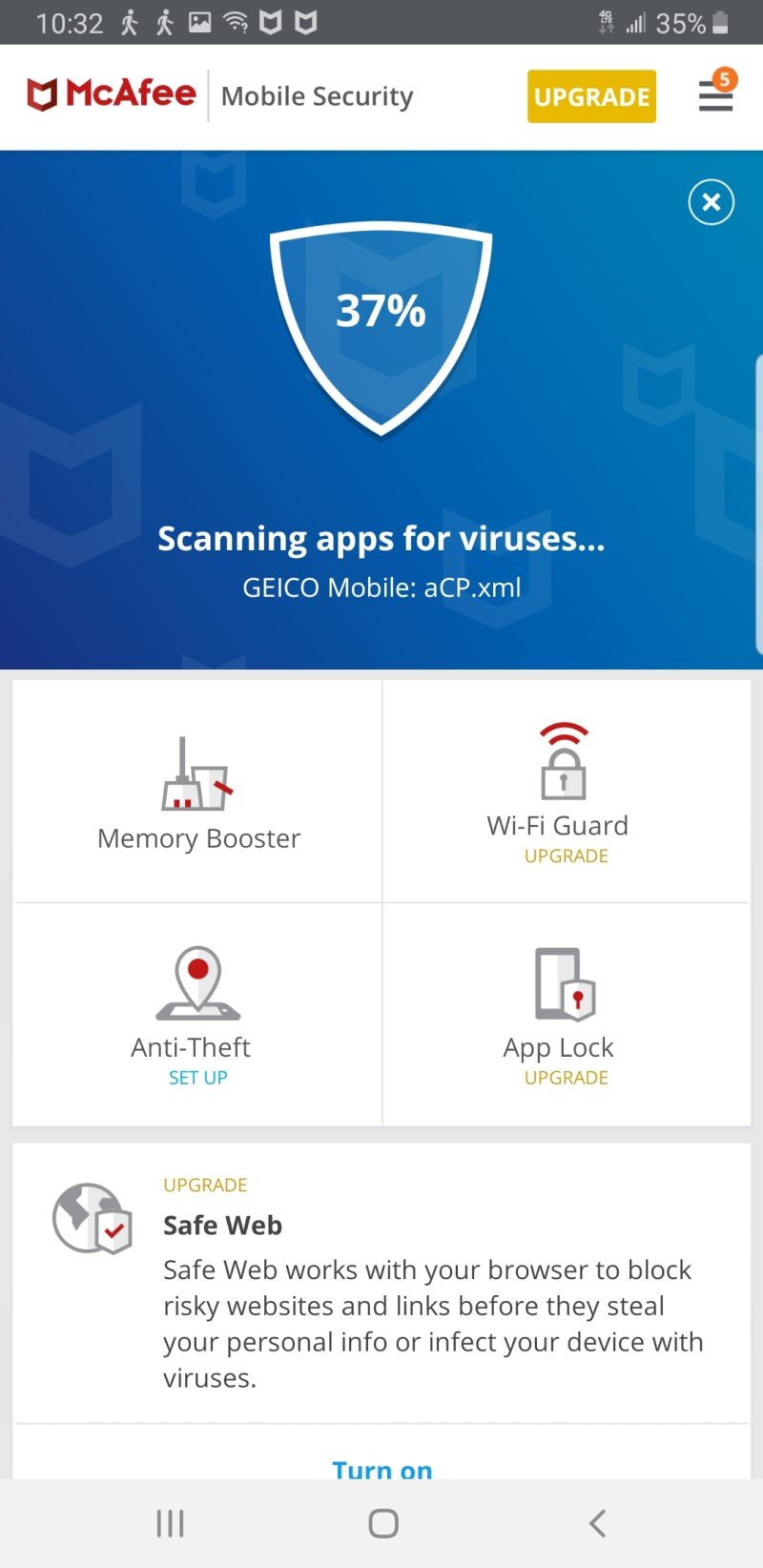
One of McAfee Mobile Security's key features is the Theft Cam tool, which snaps a pic of anyone trying to access your phone without permission. The app then sends the photo, along with your phone's location, to you to help track down the thief. If someone tries to access your phone, McAfee will lock it down after three attempts to enter a password. The potential thief can't uninstall the McAfee app if they do gain access, which makes the device less valuable if a thief wants to try and resell it.
Otherwise, this app helps in other ways. It monitors Wi-Fi connections for any possible hackers and locks down your apps from unauthorized users. This is especially helpful when connected to a public hotspot. McAfee has a VPN Proxy feature that encrypts your online activity with bank-grade encryption so you can't be tracked.
I did notice a slight slowdown of my phone while testing McAfee. However, the bigger issue I had was the number of popup notifications I was given. Each time McAfee started a scan, finished a scan, opened or moved a file the app would give me a pop-up notice, even when I was physically in the app watching scans. This can be remedied by changing the app settings, but I'd rather have a more easy plug-and-play type of program.
Pros:
- Theft Cam feature
- Monitors Wi-Fi connections
- Phone locator
- Inexpensive
- VPN proxy feature
Cons:
- Too many system notifications
- Some system slowdown
Anti-Theft
McAfee Mobile Security

- $10 from Google Play
Helps locate missing devices
McAfee snaps pictures of anyone who steals your phone, lets you remotely access and lock it down, and locates it.
Malwarebytes Security
Best adware removal for your Android
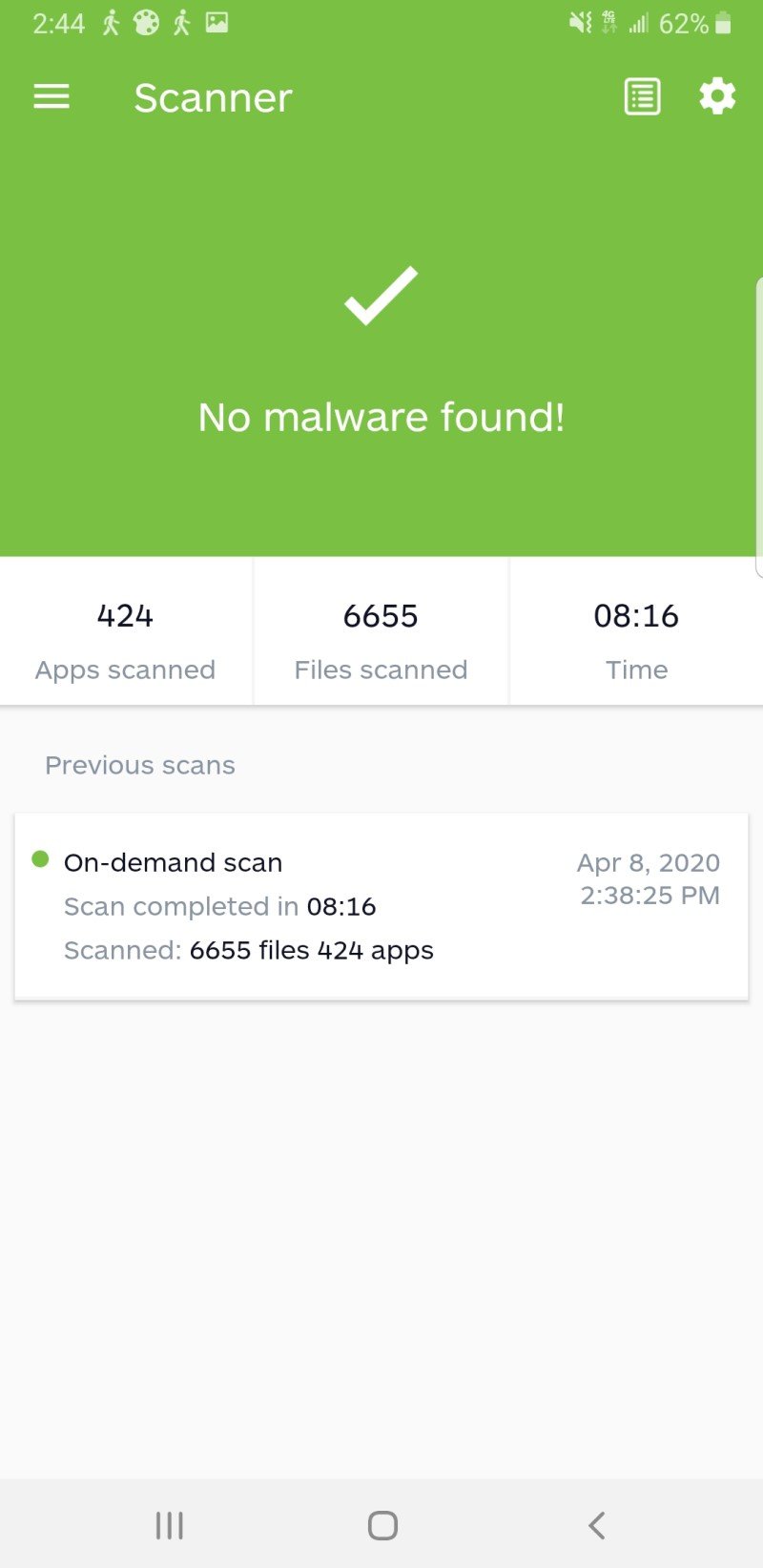
Malwarebytes doesn't stop virus infections, but it does do a really good job at rounding up malware that is already on your phone. It recognizes adware, or malicious files that are used to track your app use and online movements then create targeted ads based on that activity. Malwarebytes then remove them so you have more free space on your phone and a bit more privacy.
The malware scanner of this program recognizes ransomware and phishing schemes and will alert you if any are found on your device. If you upgrade to the Malwarebytes Premium program, you will get real-time protection that stops these and other threats before they make it on to your phone in the first place.
This antivirus app is completely free, and ad-free. This means you will never be bothered by pop-up requests to upgrade your subscription to the paid Malwarebytes version. It works with just about every Android phone and tablet, but it, unfortunately, isn't compatible with Chromebooks.
Pros:
- Removes adware
- Rounds up current infections
- Completely add free
Cons:
- No real-time protection
- Not compatible with Chromebooks
Adware Removal
Malwarebytes Security

- Free from Google Play
Adware removal with deep virus scans
Malwarebytes removes adware, alerts you of ransomware, and blocks phishing schemes.
Norton Mobile Security & Antivirus
A great pick with secure features
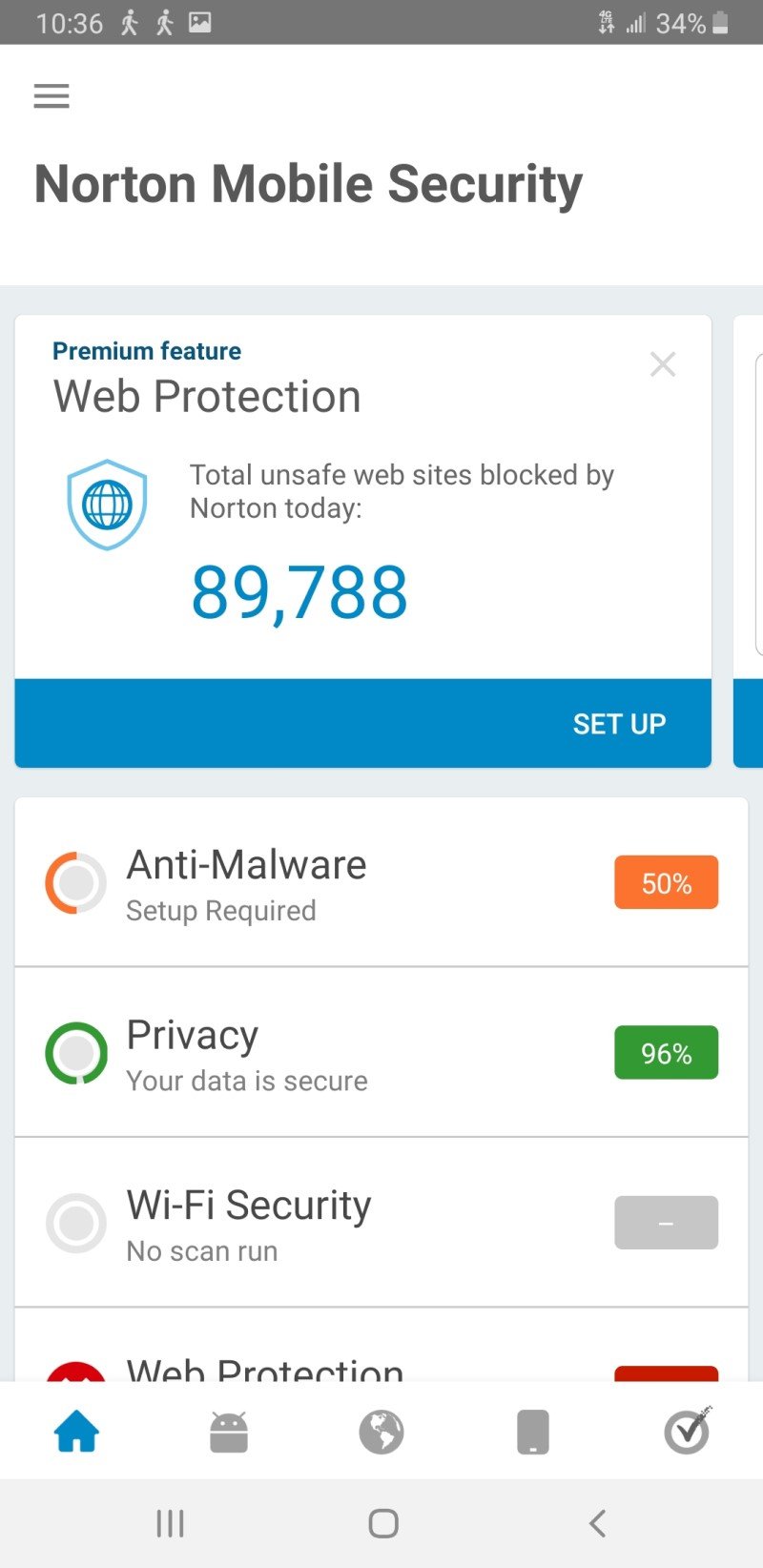
Norton's app did cause a bit of lag on my phones during testing, but it does a great job stopping malware from downloading to devices. It also has tools that monitor your Wi-Fi connection to make sure hackers don't get through. This app also has a system advisor that gives you tips on how to further protect your devices, like setting up a fingerprint lock.
As part of this program, you can tap into Norton's VPN. This feature shields your location and device IP while online. It makes it hard for adware to track your online movements and create targeted ads. Because Norton now owns LifeLock, you have the option to add this tool to your antivirus subscription, but it does cost extra.
This app did cause a bit of lag on my phones during testing. It was so obvious that the phones had become slower and it was frustrating to wait for the program to stop so my cell phone could catch up.
Pros:
- Shields device IP and location
- Stops targeted ads
- Helps secure entire phone
- System advisor gives you tips
- Access to Norton VPN
Cons:
- Causes noticeable slowdown
- LifeLock costs extra
Security Advisor
Norton Mobile Security & Antivirus

- $15 from Norton
Scans your phone for vulnerabilities
Norton looks for any way your phone is vulnerable and helps you secure it against malware, snoops, and hackers.
Anti-Hacking: PSafe DFNDR Pro Security
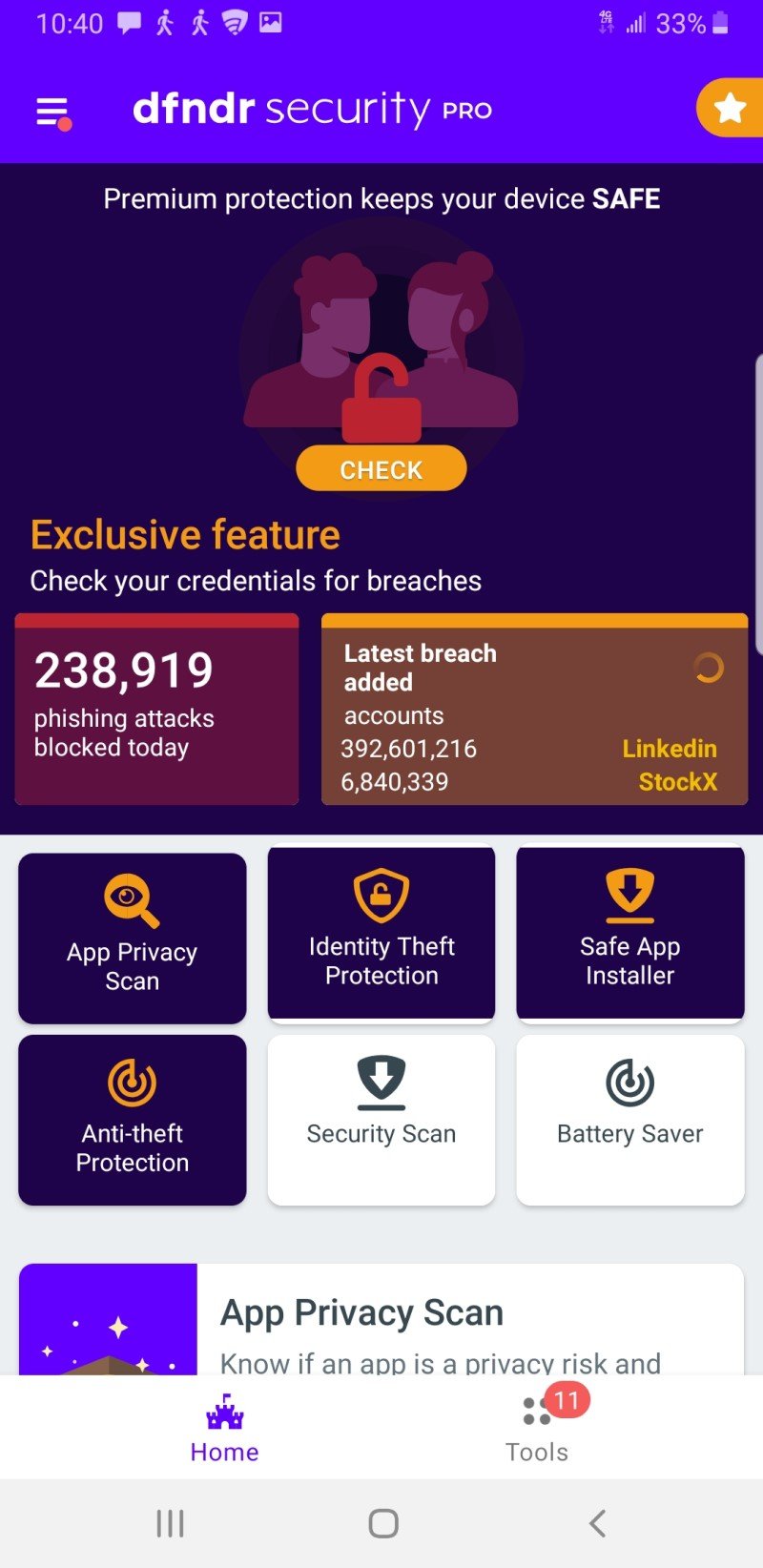
This app scans for malicious downloads and programs running in the background that may slow down your phone, use up too much battery power, or cause your device to overheat. PSafe also includes fake news and spam blockers, and malicious link alerts in messaging programs, including WhatsApp.
DFNDR monitors your digital identity to keep it safe and alerts you if this information is ever leaked. It also locks down your phone against hackers that attempt to access through public Wi-Fi connections. If your phone is stolen, DFNDR sounds an alarm, snaps and sends a picture of the thief to you, gives you the location of your phone, and lets you remotely access your phone to further secure or wipe sensitive information from it.
PSafe's antivirus mobile app is the messiest and most confusing to figure out on this list. There is so much on the dashboard that you need to scroll down several times before seeing them all. While there's some cool information here, DFNDR adds statistics and other generic tidbits that don't need to be front and center each time you open the app.
Pros:
- Blocks fake news
- Stops malware files
- Digital identity protection
- Theft protection
- Can find rogue background apps
Cons:
- Messy dashboard
- Expensive
Anti-Hacking
PSafe DFNDR Pro Security

- $29 from Google Play
Blocks fake news and fake links
DFNDR keeps hackers from accessing your phone by monitoring internet connections and blocking fake news, links, and websites.
QR Scanner: Sophos Intercept X for Mobile
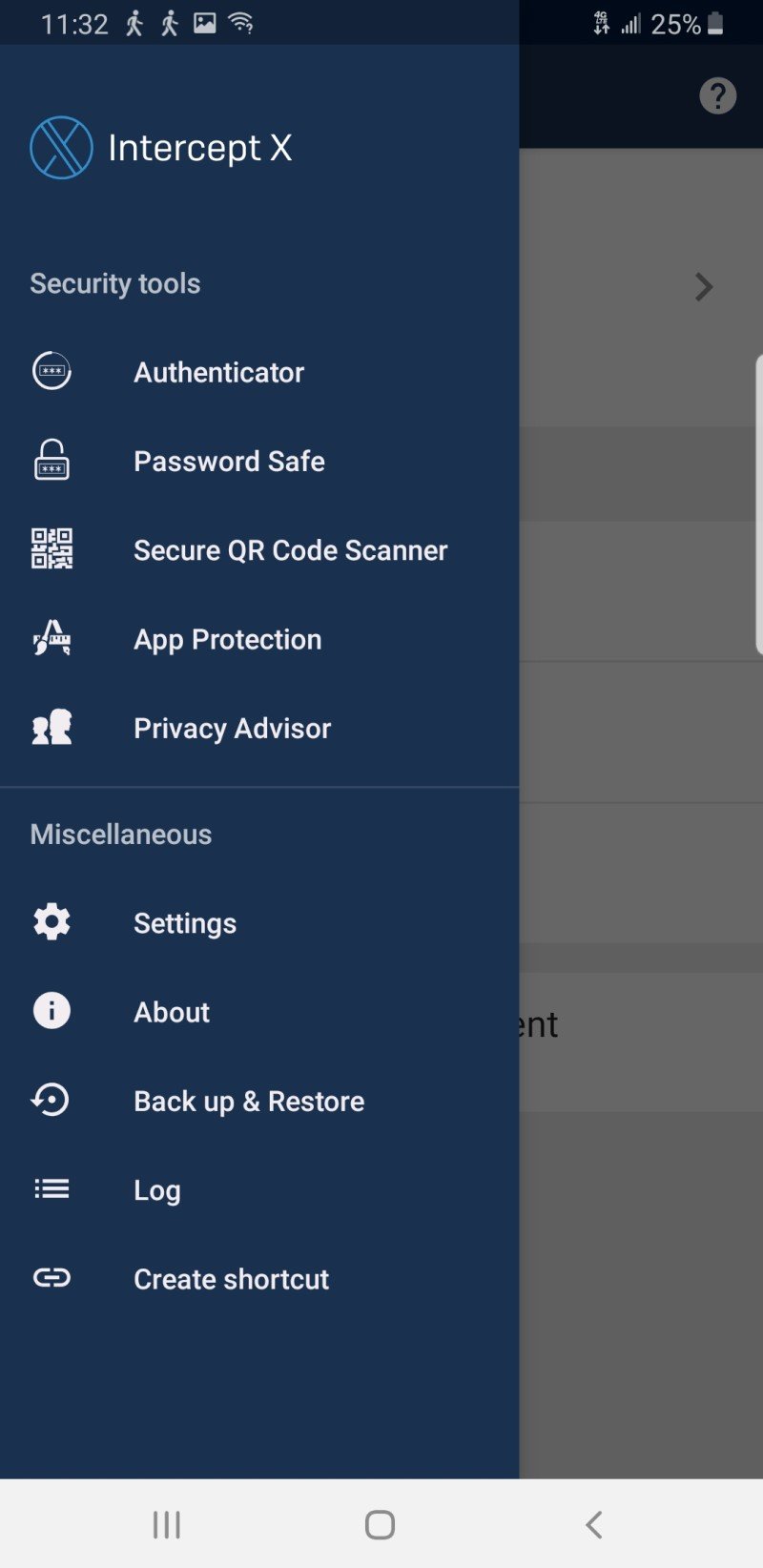
Sophos has a neat QR scanner that checks links for malware before connecting you to scanned data. It filters text messages and quarantines those with malware URLs. This app lets you remotely access stolen phones to wipe data or reset passwords, send text commands to the thieves, and track where your phone is.
This isn't the most intuitive app to use. It took me a few moments to figure out how to find the list of tools and features, enable the ones I wanted to use, and disable those I wished to skip. Also, some of the directions on how to use some of the tools aren't the clearest.
Even though Sophos Intercept X is compatible with several devices, I don't recommend Sophos for computer users because it is a difficult program to figure out, takes up a lot of resources, and isn't very effective with overall protection. It also isn't compatible with Chromebook at all. However, it is a great program for securing mobile devices, including Androids, and it isn't nearly as resource-heavy as other programs are on your phone.
Pros:
- QR scanner
- Remotely access lost or stolen devices
- Protects against malicious apps
- Not resource-heavy
- Free to use
Cons:
- Not recommended for home computer use
- Not intuitive to use
QR Scanner
Sophos Intercept X for Mobile

- Free from Google Play
When you need a safe QR scanner
Using its QR scanner, Sophos gives you added protection against malicious links, websites, and files.
Parental Controls: Trend Micro Mobile Security & Antivirus
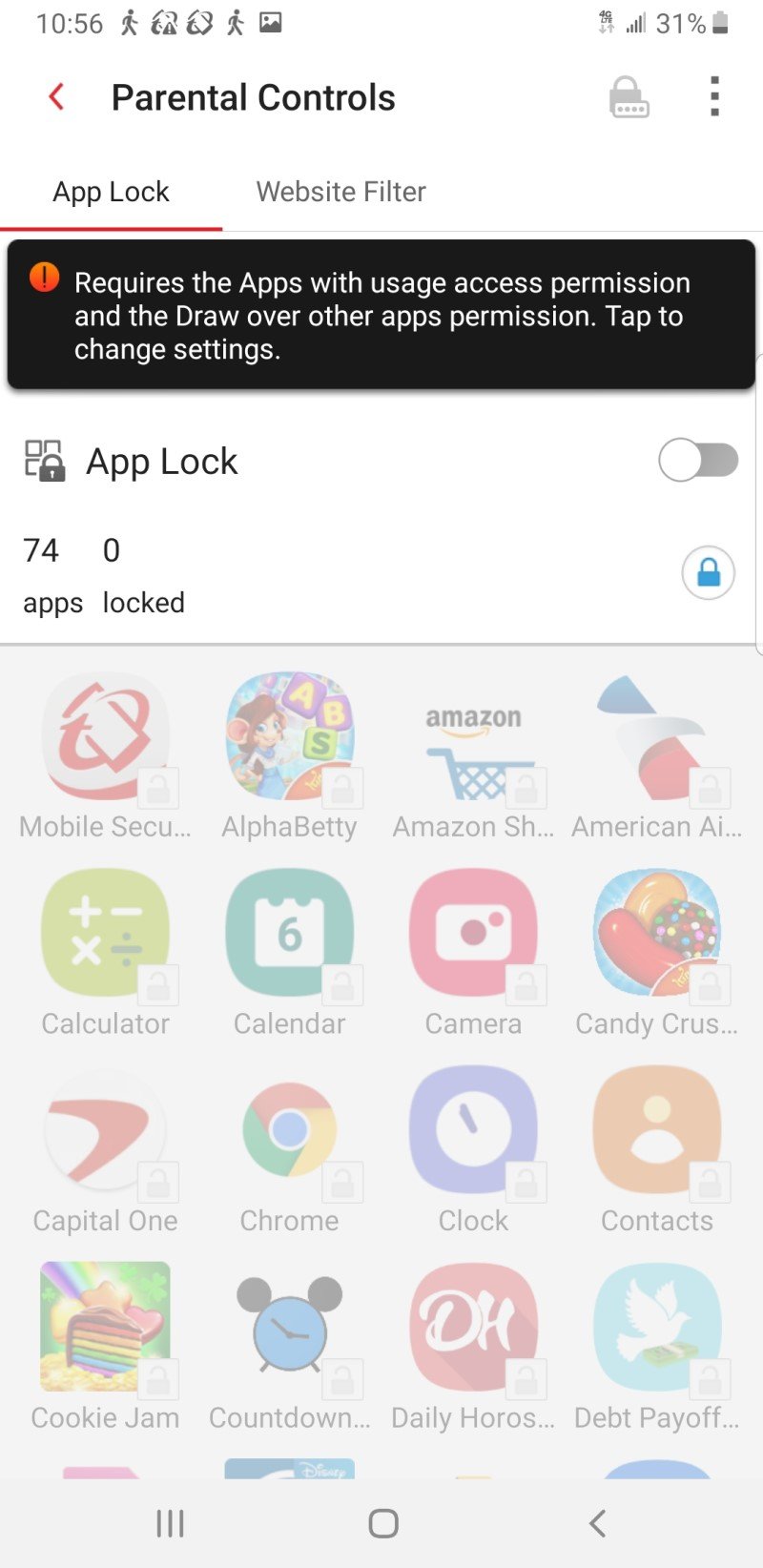
Malware attacks, including ransomware, and phishing schemes, are stopped by Trend Micro's mobile antivirus app. It's designed to secure all your personal data so thieves or apps can't swipe it. This app optimizes your phone by helping you identify apps that are using up too much of your data.
Trend Micro uses web recognition technology to ensure when you visit a webpage it is a legitimate one and not a phishing scheme or a redirect to a malicious page disguised as a real one. This app also includes parental controls so you can manage what your child is watching on their smartphones, shut down apps, filter web content, or even restrict access to the internet during times when they should be in bed or doing homework.
I did notice that using Trend Micro caused my battery life to diminish more quickly compared to other mobile antivirus apps. Other users have reported the same issue with their phones. It doesn't appear to be a universal issue, but enough feedback about the problem justifies a mention.
Pros:
- Parental controls
- Excellent malware protection
- Web reputation technology
- Can help optimize your phone
Cons:
- Guzzles resources
- Expensive
Parental Controls
Trend Micro Mobile Security & Antivirus

- $30 from Google Play
Lockdown apps, block websites
Parental controls let you choose the apps your child can use, websites they can visit and if they can access the internet at all.
Some final thoughts
Be careful when choosing a mobile security app for your Android because several apps, especially free ones, don't actually stop virus infections, but rather gather up malware after they've made it to your device. Trojans and ransomware are being manufactured for mobile devices at an alarming rate, so malware blocking on top of virus scans are essential. Phishing filters are also needed since the most common malware are schemes that trick you into giving personal information, including credit card numbers, account passwords, and social security numbers.
Also, keep in mind that several antivirus apps offer a free version as the initial download with an in-app purchase for the ad-free version.
My top pick for Android antivirus is Bitdefender Mobile Security because of the quality of protection it gives you on top of being a good value. During my tests, Bitdefender did an excellent job of stopping both malware files trying to download to our phones and phishing schemes. It didn't use up much of my devices' resources, so I didn't notice any lag, even during virus scans. I still opened and used apps, sent text messages, and chatted on my phones without interruption or delay.
Credits — The team that worked on this guide

Nicole Johnston writes for multiple Future Publishing brands, including Android Central, covering primarily internet security and privacy programs. She has over 13 years of research and writing experience in both the public and private sector, including seven years of testing and reviewing consumer products and five evaluating antivirus software, parental controls, VPNs and identity theft services. Nicole is mom to 10 kids.
14/04/2021 11:06 AM
TCL announced a bunch of new phones
14/04/2021 03:00 PM
Huge Android 12 leak shows off tons of new features — here's what to expect
14/04/2021 11:28 AM
Spotify Car Thing officially announced, ready on a limited release
14/04/2021 12:30 AM
New Nvidia partnership could hint at Chromebooks with RTX graphics
14/04/2021 05:04 PM
TCL offers up three new 20 Series phones
14/04/2021 03:00 PM
It's easy to use Zoom on the Nest Hub Max. We'll show you how!
14/04/2021 09:00 PM
Good luck buying a OnePlus Watch
14/04/2021 04:49 PM
April Quest 2 v28 update adds 120Hz, wireless PC VR streaming, and more
14/04/2021 02:32 AM
- Comics
- HEALTH
- Libraries & Demo
- Sports Games
- Racing
- Cards & Casino
- Media & Video
- Photography
- Transportation
- Arcade & Action
- Brain & Puzzle
- Social
- Communication
- Casual
- Personalization
- Tools
- Medical
- Weather
- Shopping
- Health & Fitness
- Productivity
- Books & Reference
- Finance
- Entertainment
- Business
- Sports
- Music & Audio
- News & Magazines
- Education
- Lifestyle
- Travel & Local


